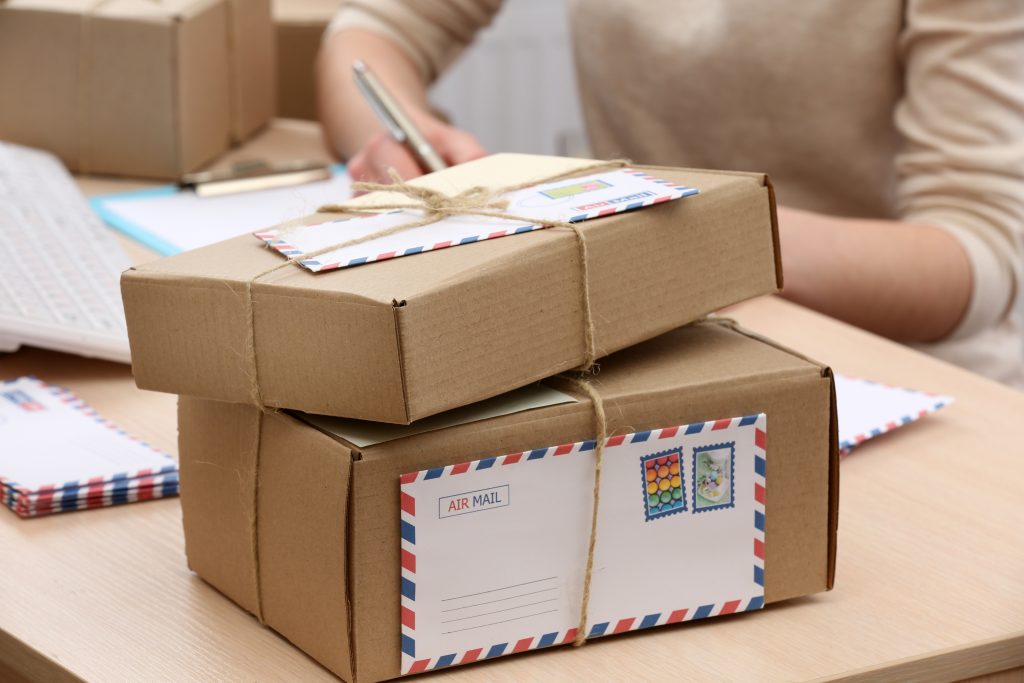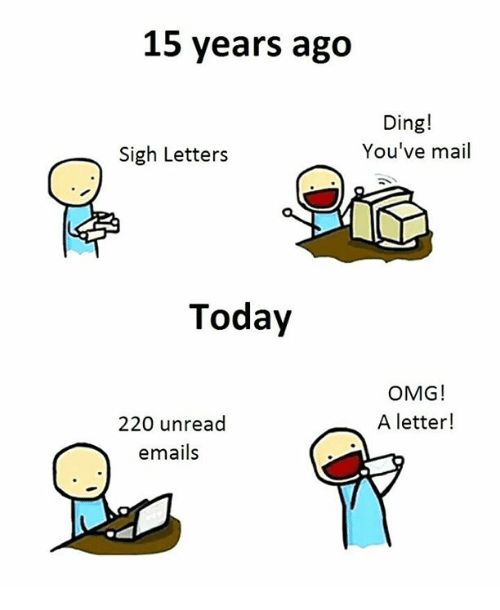
Marketing departments have been using the lumpy mailer techniques in their direct mailing for years to generate interest in a product, service or generally keeping a brand in the mind of a consumer. Providing gifts to potential and/or existing customers like pens, magnets, stress balls, journals, tote bags, calendars, bottle openers, key rings, flashlights and the list goes on.
Lumpy mail is any type of direct mail that stands out from standard mail by being bulky as it contains merchandise or giveaways.
Sales professionals can utilise this technique as well and if done correctly can have a massive impact on building trust, credibility and ultimately hitting their target/quota.
The art of this technique is not to do what your marketing department does, so leave them to send out the pens, stress balls and everything else. A sales professional wants to concentrate on what will make an impact on a prospect on the spot, which means listening to and highlighting what they say and also asking open-ended questions on topics that will give you information to act on in both their business life but more importantly in their personal life. Getting the latter right can make the difference between a buyer choosing you or a competitor. I have supplied an example from my own experience of how this has worked in the past for me and hopefully this gives a little insight and sparks some ideas for you.
How The Travel Guide Closed The Sale
I had a prospect that I had been in contact with for around six weeks, he was speaking with a number of suppliers and he had narrowed down his interest to our product and two competitors. We had built a good relationship and the buyer was very open and all of our conversations had a natural flow. I had supplied the prospect with a presentation on our offering and I was told our proposal was in line with our competitors. He explained that he was going on holiday with his fiancée and we got talking about their trip. During the conversation I asked if they had planned out what they were going to be doing and he advised they had looked a bit online and kind of knew some of the sights they wanted to visit.
Their trip sounded amazing and, as a travel lover myself, we spoke about destinations we had both visited, our favourites and the ones we had on our future lists. Here’s the key to this example, when I travel I like to pick up a travel guide as these can provide insight into areas of interest you may miss while searching online, and, from this conversation, it seemed that the prospect hadn’t thought about that. After about forty five minutes the call ended and the first thing I did was to look up online for a travel guide for their destination. I found it for less than six pounds and a postage cost of 2,99. The supplier of the guide allowed you to send the purchase as a gift delivery and allowed me to include a message which was great!
The guide went out that evening on a next day delivery with a personalised message around the conversation we had that day. It was short, just saying that their trip sounded fantastic, pointing out a couple of things he had said in particular, hoping the guide would help with ideas, then finally wishing both an amazing trip and that we would catch up on his return. Two days later, I received an email from the prospect, thanking me and saying that he really appreciated the gesture and that he looked forward to speaking to me upon his return.
I had scheduled a call with him on the day after he got back into work, so that he had a day to catch up, but instead he called me that afternoon. We spoke about their trip again and he said that the travel guide I had sent him had been a great source of information, they had visited two sights from the book and the pull out map in the back had been very useful when they were in an area with no signal. He said that he had spoken to everyone involved at his end and they were ready to make the purchase. I received an email half an hour after that call with the signed paperwork.
That closed sale got me just over two thousand pounds in commission and the guide that had cost me less than ten pounds including delivery had possibly made the difference between the buyer purchasing from our company or a competitor. Listening to everything a prospect says and asking the right questions to gather key information is incredibly important in sales and it doesn’t need to be just about their business.
The moral of this story is get to know your prospects on a personal level as well, build a rounded relationship and take action on what you feel is important. You don’t need to spend a hefty chunk of change, you need to make sure what you provide is meaningful. Prospects will appreciate it more if you show them you listen, understand and remember what they say and if they don’t expect it, that’s the key!
Lumpy Mailer Campaigns
These can also be a great idea but it needs to be considered as you’re sending this direct mailer to more than just one prospect so can be a little more difficult to personalise to each one. None the less if done correctly this can provide you with a great ROI.
A quick example from me on this one. I was working for a company and looking after a team of BDRs (Business Development Representatives). One of the BDRs had a meeting with their aligned Sales Executive and they came up with a great idea for a campaign they wanted to run. They had come up with the idea of sending out a GoPro case to each prospect with a message about this being “the security” which was our key selling proposition. The prospects would then need to book a meeting for a demo of our platform to receive the actual GoPro to go inside. There was a lot more involved with regards to messaging, process, etc., but hopefully you get the gist.
This campaign was a great idea, because the case itself wasn’t too expensive, so if the prospect didn’t come back to them then they would have only spent money on the purchase of the case, but also out of the 20 potential buyers they targeted they only needed one to make a purchase in order to see a hefty return on their investment. Even if all the prospects took a demo and received the GoPro, the commission from one closed sale would see the reps get more than the entire campaign cost. So the numbers were great from the initial concept through to the execution.
A more simpler campaign and one I did throughout all my years in selling is sending Christmas cards to all my prospects and/or clients. These were handwritten so it was time consuming, but it was cost effective and most certainly made me stand out from the competition.
Direct mailing by sales professionals seems to have become a lost art, but if you incorporate this skill into your other prospecting activities it can be more powerful than you know!

The Power of Lumpy Mailing
In this age of selling most everything we do is digital, prospects are inundated with online ads, emails and social messages, so the mail box can be a welcome respite, like getting a takeaway or stopping at a family member’s for dinner, so you don’t have to cook.
Lumpy mail isn’t smooth like a letter, it’s mail that has something other than a piece of paper in it, and because people don’t know what’s inside they will absolutely, positively, without doubt open it when it arrives.
It’s the intrigue and excitement so that’s why it’s important to make it meaningful!
Check out below some interesting numbers from DMA‘s Response Rate Report:
- Direct mail response rate is around 5.1% compared to 0.6% email, 0.6% paid search, 0.2% online display and 0.4% social media. This is the highest response rate the DMA has ever reported, since coming out with the Response Rate Report in 2003
- Targeting customers on a 1:1 level increases response rates up to 50% or more
- Direct mail response rate among people aged 18-21 years old is 12.4%
- Nearly 80% of consumers are more likely to do business with a company that offers personalized experiences
- For every $167 spent of direct mail in the US, marketers sell $2,095 in goods. That’s a 1255% return
- Lumpy mail is opened around 100% of the time, because whether it’s a novelty stress ball, a calendar or a pad of custom sticky notes, we just have to know what’s inside!
Listening and Reading Between the Lines is Key
Stand out from the competition by listening to your prospects and acting on what they don’t, for example:
- Did your prospect mention about trying a new food or drink?
- Are they travelling and can you help with something like a guide?
- Is there a small gadget that will make a difference to their work or personal life?
- Do they have children and is there something their child wants to have?
- When is their birthday?
You want to find out this information without asking them directly and you need to ensure you add this to the CRM. When you build solid rapport with your prospects the conversation becomes more open and information flows more freely. Listen out for hobbies, travel, exercise, children’s names, partner information, anything that you can leverage to increase your chances of closing the sale or retaining their business at renewal time.
The Bribery Act
This will be different depending on the country you’re working in, but it’s important to know the law with regards to gifts and hospitality for clients. This should be laid out in your company’s Sales Playbook. Generally your company will explain what is considered a correct amount of money to spend to stay in line with business law. If your company does not have this in their playbook, then you should be able to find this out by asking a HR representative.
In the United Kingdom corporate hospitality and gifts are not prohibited. But if they are excessive and go well beyond reasonable efforts to improve a company’s image, cement good client relations, or promote a business’ goods and services, then a corrupt inference might be drawn. On the other hand, if the hospitality and gifts are proportionate and reasonable given the type of business you are engaged in, then it is very unlikely that these will be considered a bribe.
The UK government has reassured businesses that there is no intention to crack down on normal corporate gifts and hospitality. The Act is not intended to stop companies taking clients to lunch or offering gifts as a sign of good relations.
If you’re based in the United Kingdom and want to read fully the UK Bribery Act 2010 then visit GOV.UK for full details.
In Conclusion
Active listening is a highly important skillset for any sales professional. When we listen we find out important information about a prospect’s business, other members in their organisation that could play a key role in the decision process and, more importantly, about them, what makes that person tick, what are their personal likes and dislikes.
Gather as much information as you can on each and every engagement you have with a prospect, make notes during and after these discussions and then act appropriately to position yourself as their preferred supplier. It’s important to understand your prospects on as many levels as possible, if you can master this then you will build trust and credibility much quicker and easier than your competition.
Incorporate direct mailing into your selling strategy and more importantly lumpy mailing. You’ll be surprised how effective this can be when including this tool into your prospecting armoury!
“If you listen better, you’ll sell more”
Thanks for reading. If you enjoyed this article please like below and share on your social channels.


